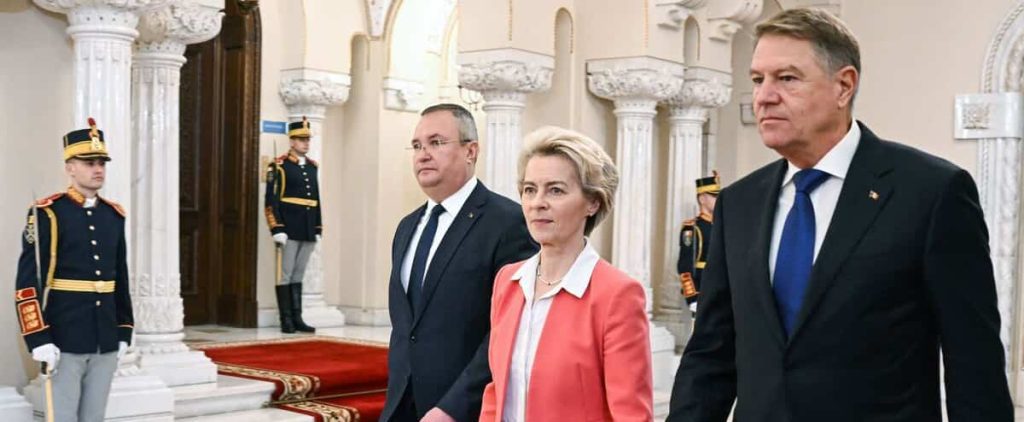
Azerbaijan will supply electricity to the European Union (EU) via a new submarine cable, under a deal signed in Romania on Saturday and aimed at diversifying the bloc’s resources following Russia’s attack on Ukraine.
“We have decided to turn our backs on Russian fossil fuels and turn to our reliable energy partners,” Commission President Ursula van der Leyen said in Bucharest.
The economic and technical framework of the agreement was not specified in a press release published by Romanian President Klaus Ihannis during the meeting between the various signatories.
It provides for site commissioning in September 2023 for commissioning in 2029. 1195 km long and almost entirely submerged in the Black Sea, the cable must connect Azerbaijan to Hungary via Georgia and Romania.
These four countries are parties to the agreement. Romania and Hungary, member states of the EU, benefit from support from the European Commission.
“We are making preparations to build a long submarine electric cable. If I were younger, I would say you have to be rock’n’roll to start such a project,” said Hungarian Prime Minister Viktor Orbán.
Since the invasion of Ukraine in February, the EU has fostered strategic partnerships with various producing states in an effort to reduce dependence on Russian hydrocarbons.
Its president, Ilham Aliyev, predicted that it would be “our contribution to European energy security” and “a new bridge between the EU and Azerbaijan”.
According to Ursula van der Leyen, the cable represents a “new path full of possibilities” for Georgia, a “country with a European destiny” that could become an “energy hub”.
It will “bring electricity to our neighbors like Moldova and Ukraine and contribute to the modernization of the Ukrainian energy system,” added the president of the European Commission.
According to a press release from the Romanian Presidency, the agreement covers other areas of cooperation such as “new energy technologies”, “hydrogen production” or “expansion of transport infrastructure”.





More Stories
Allegations of corruption Qatar warns of ‘negative impact’ of European measures
USA: Famous “Hollywood cat” euthanized in Los Angeles
The campaigner who called for the shooting of Ukrainian children has not been charged